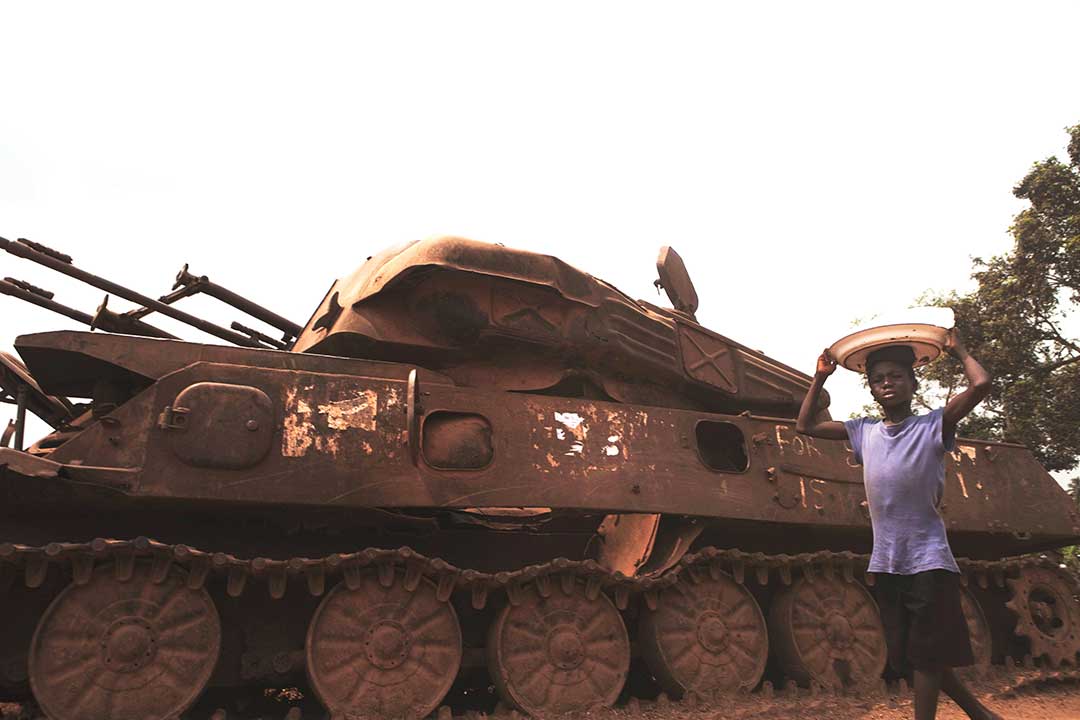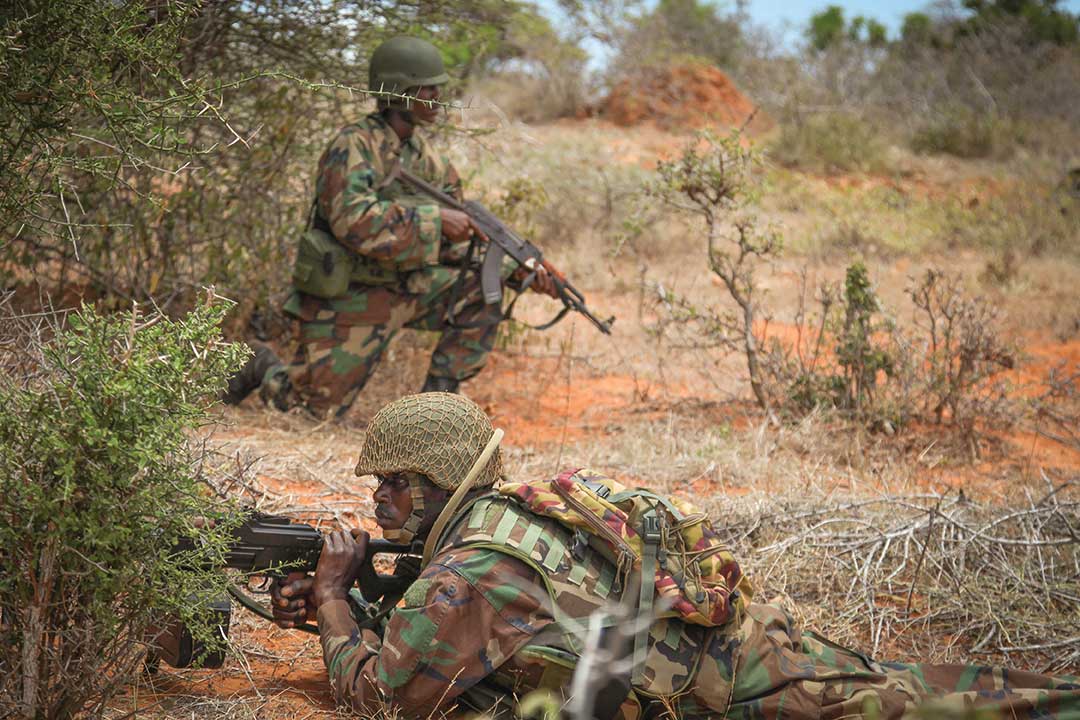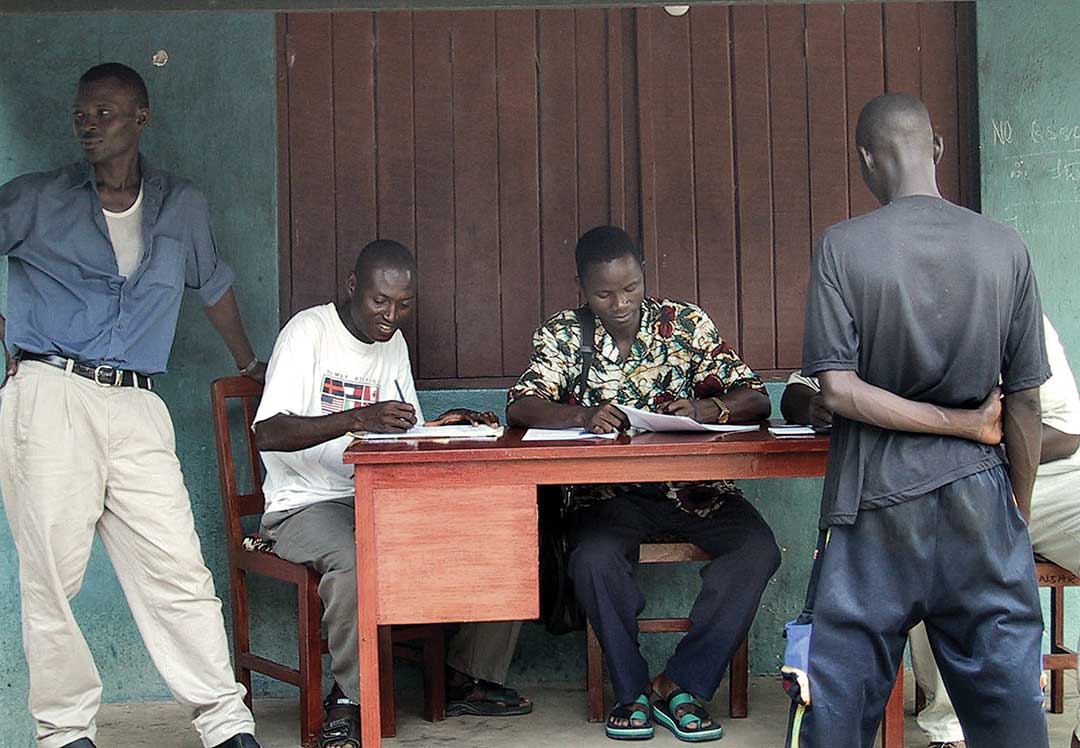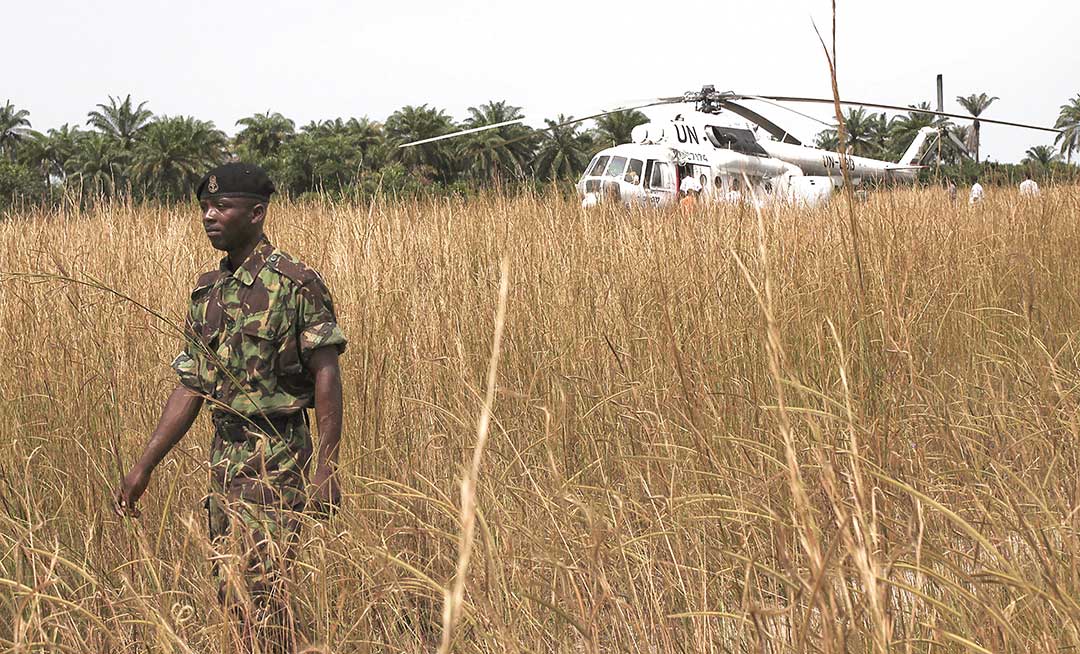ADF STAFF
As a brutal civil war raged in neighboring Liberia in 1991, Sierra Leone’s long-standing government corruption and weakness inched the nation closer and closer to catastrophe. When the forces of Charles Taylor’s National Patriotic Front of Liberia (NPFL) crossed the border that March, Sierra Leone soon found itself under attack on two fronts.
As its Army battled the NPFL, Sierra Leone also came under attack from the Revolutionary United Front (RUF), a well-armed and well-funded rebel guerrilla group led by Foday Sankoh, a former Army corporal who found common cause with the invading Liberians. Civil war had come to Sierra Leone.
The ill-equipped national Army, weakened by institutional corruption and a terrible economy, was unable to stop the RUF. By 1994, the RUF controlled lucrative diamond mines and threatened the capital, Freetown. By 1997, a group called the Armed Forces Revolutionary Council had joined the fray.
The complicated conflict continued for years and included some of the most notorious brutality of modern warfare as government and rebel troops alike mutilated and maimed civilians. The government called in a private security contractor to help turn the tide, but even then, fighting continued for several more years. It would take international intervention in the form of United Nations, British and Guinean forces fighting alongside the Sierra Leonean Army to push the conflict toward its conclusion in 2002 after stopping the RUF from taking the capital. The 11-year civil war displaced 500,000 people and killed 50,000 others.
Perhaps no nation ever has been in greater need of security sector reform (SSR) than Sierra Leone after its punishing conflict. The war laid bare all the weaknesses, neglect and deficiencies of a national army unable to effectively and professionally respond to security threats and protect its borders. In the war’s aftermath, the country disarmed 72,490 combatants, demobilized 71,043 and reintegrated 63,545, which included 6,845 child combatants, according to the Global Facilitation Network for SSR.
The nation’s postwar SSR process has served as a positive example for other nations emerging from conflict and faced with rebuilding national security sectors. A U.N. magazine declared that “the experience of Sierra Leone is not only a major national achievement, but also a shining model that countries in West Africa and in the Sahel could get inspiration from.”

TRANSFORMATION OVER REFORM
SSR probably is best when it reaches beyond mere reform toward total transformation, according to an article by Sarah Detzner, titled “Modern post-conflict security sector reform in Africa: patterns of success and failure,” in African Security Review. The effort should be inclusive and emphasize civil and constitutional control and “promote professionalism, improve resource utilization and operational effectiveness.”
Success in Sierra Leone seems to validate the value of consulting with the broader population to focus on more comprehensive security through economic development and building police capacity instead of the more traditional focus on national militaries, Detzner wrote.
This approach was emphasized by retired Brig. Gen. Kellie Hassan Conteh, who worked on SSR for Sierra Leone as head of the National Security Council secretariat and now serves as the nation’s minister of defense. In a 2010 panel discussion on SSR in West Africa for the Democratic Control of Armed Forces Geneva Centre for Security Sector Governance, Conteh shared some details regarding Sierra Leone’s approach.
As it began its process, leaders looked at the nation’s history and considered several major points.
First, officials wanted to redefine security. Up until that point, Sierra Leone’s security sector primarily was a relic of the colonial era through which the military existed mainly to protect the ruling regime. Up to and during the civil war, Conteh said, the people thought the military and police had let them down and that there was no access to justice.
“So, we wanted to look at it holistically,” Conteh said in the panel discussion. “What do we really mean by security?”

Officials put the question to the people, not technocrats. “The definition we got shocked the military in particular, because they realized they had little or no real role to play,” Conteh said. “Most of what we really needed to look at are internal issues, and therefore we needed a stronger police force rather than a stronger military force. The military, yes, should be there in case the police would sometimes require their services.”
In short, “our conclusion there was that our security was everybody’s business,” Conteh said. “We all have a part to play.”
THE IMPORTANCE OF INTELLIGENCE
Sierra Leone found that intelligence gaps were a major problem. Before the civil war, the national intelligence apparatus only protected the ruling government. During the war, no reliable intelligence could be produced. Conteh said officials formed a committee to help collect and feed useful intelligence up the chain with an inclusive new architecture that involved people even at the local level, such as chieftains, women, civil society groups and youth leaders.
In the past, he said, people were conditioned to view security as “the government’s business.” Changing that thinking — “democratizing” human security — would help Sierra Leone address security problems such as arms, drugs and human trafficking.
Sierra Leone’s Office of National Security (ONS) established links nationwide that let civilians report threats, according to Detzner. These connections led to a security review with a strong consultative element. Locals reported on security concerns in their regions, which drove the focus toward police over more traditional military capacity building.
Simply spending money on military upgrades does not ensure good SSR. In fact, it may work against true reform. An October 2020 blog post by John Campbell for the Council on Foreign Relations underscores an important point about effective SSR: Focusing on providing training and equipment at the expense of institutional reforms doesn’t get the job done.

Such a focus risks “strengthening unaccountable, corrupt, and predatory security sectors” and wasting money on equipment and material that cannot be sustained, Campbell wrote. Instead, a holistic approach that focuses on institutions shows more potential for durability.
That is closer to what happened in Sierra Leone. Transformation efforts reached into internal and external security and created agencies — such as the ONS — that helped ensure the free flow of security information from the local level to the office of the president, according to the July 2017 edition of UNOWAS E-Magazine, a quarterly publication of the U.N. Office for West Africa and the Sahel. The effort “began the difficult task of reversing public suspicion of security forces and involving citizens in their own security.”
“For better or worse, the war acted as a catalyst to move the focus of security away from exclusive emphasis on uniformed security forces (military and police) towards personal security for individuals,” Conteh wrote in 2010 in “Security Sector Reform in Sierra Leone 1997–2007: Views from the Front Line.”
Within five years of the end of the civil war, Sierra Leone held its first peaceful national election in 20 years, an event that observers described as “free, fair and credible,” the U.N. said. The orderly conduct of the vote essentially was assured by the nation’s own security force.

“Seen within the context of the level of violence experienced by the people of Sierra Leone during the 11 years civil war, the fact that Sierra Leone conducted this generally violence-free election only five years after the end of the conflict is a remarkable achievement,” according to the U.N.
The nation’s hard work at rebuilding its security institutions was validated in April 2013 when 850 troops from Sierra Leonean Contingent Leobat 1 started a 20-month deployment to the African Union Mission in Somalia (AMISOM).
The battalion was the first of its kind for Sierra Leone since the end of its civil war. The West African nation remains the only one from its region to deploy Soldiers to AMISOM’s military component. The country also has sent police personnel to serve in Somalia.
“We are now partakers of global peace enhancement,” Lt. Salieu Sankoh of the Republic of Sierra Leone Armed Forces said in a 2013 U.N. video. “Of course, during our own 10 years of civil war, people came from different countries to support our peace achievement. Now that we have the opportunity to reciprocate that, we are very happy.”

